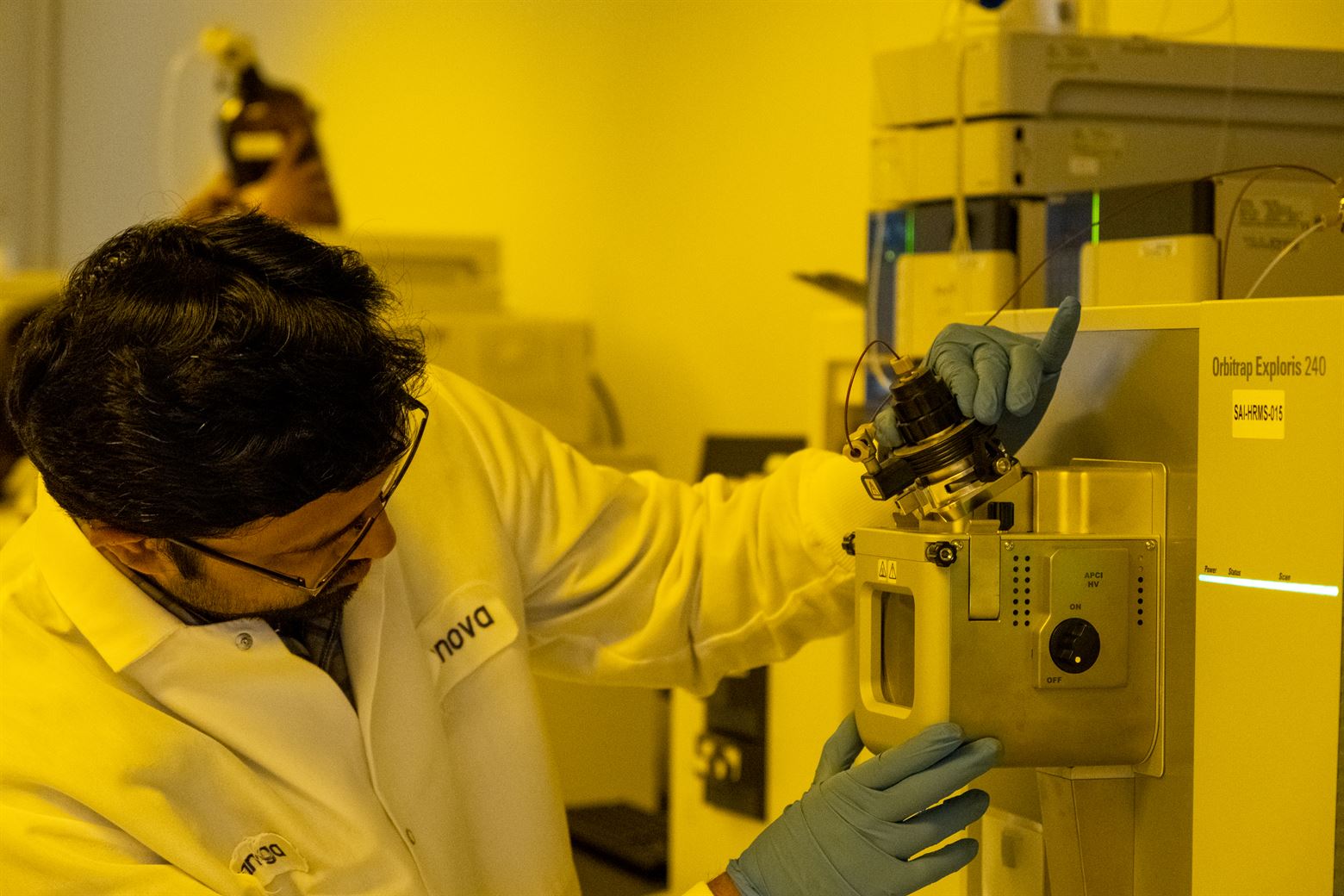Sannova
Sannova: Your Quantitative Proteomics Expert
Our quantitative proteomics services provide precise analysis of protein expression, modifications, and interactions to uncover critical insights into biological systems. Using advanced mass spectrometry techniques and cutting-edge bioinformatics, we help identify proteins, differentiate endogenous compounds, and validate therapeutic targets. Whether through label-based or label-free approaches, our services deliver accurate, high-resolution data to support drug discovery, treatment evaluation, and research advancements. Partner with us for reliable, comprehensive solutions that drive innovation in quantitative proteomics and beyond.

Assays with Trapped Ion Mobility Spectrometry (TIMS)
While gene therapies show great promise in treating a wide variety of diseases, they are challenging to develop, and require specific analytical expertise. Most common challenges faced when developing bioanalytical assays for therapeutics involving proteins, peptides or oligonucleotides are measuring low-abundance proteins, differentiating isomers, understanding post-translational modifications, and handling sample complexity.
Cutting-edge technologies such as the Trapped Ion Mobility Spectrometry (TIMS) have advanced proteomics capabilities and helped resolve such challenges by providing unparalleled selectivity without compromising sensitivity. The TIMS’s fourth dimension of separation allows for the development of TK and PK assays with a level of accuracy and precision not available through other traditional approaches. This combination allows for the developmental progression of peptide, protein or gene therapies due to the higher accuracy and confidence in the data being generated.
Facing Stability and Enzyme Challenges
The development of oligonucleotides, antisense oligonucleotides (ASOs), peptide drugs, and peptide therapeutics for disease treatment holds tremendous potential, yet it comes with unique challenges that require specialized analytical expertise. Oligonucleotides, being prone to instability and degradation, pose difficulties in developing accurate assays for quantifying their concentration. The presence of nucleases, enzymes capable of breaking down DNA and RNA, further complicates the accurate measurement of oligonucleotide levels in biological samples. Moreover, the production of oligonucleotides at large scales and maintaining consistent quality can be demanding.
Similarly, peptide drugs present challenges in their analysis due to their small size and inherent instability. Accurately measuring peptide concentration requires the development of precise assays, which can be hindered by their susceptibility to proteases, enzymes that degrade proteins. These characteristics of peptide drugs add complexity to the assay development process and necessitate specialized techniques to ensure accurate and reliable measurements. Overcoming these analytical hurdles is crucial for advancing the development and utilization of these valuable therapeutic molecules in scientific research and clinical practice.
Discover the full spectrum of Sannova's expertise beyond quantitative proteomics – explore an example of the diverse range of molecules we excel at, and experience stress-free bioanalytical and analytical services today!
Discuss your molecule with one of our specialists

Why Work With Sannova?
Choose Sannova for exceptional quality, personalized services and excellent results, all delivered as quickly as our commitment to excellence allows.